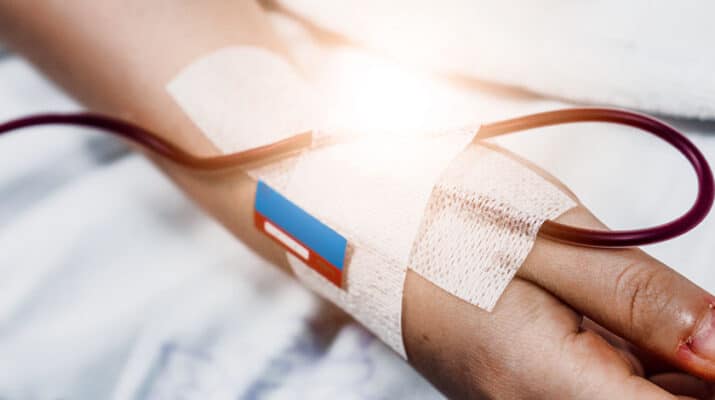Patients fearful to get preventive cancer screenings because of global pandemic
Megan Plete Postol

COVID-19 has inadvertently caused substantial increases in the number of avoidable cancer deaths as a result of diagnostic and treatment delays.
“Unfortunately, cancer and other medical conditions have not taken a holiday during the pandemic, and so we must remain vigilant,” said Mitchell Brodey, an internal medicine-infectious disease specialist and the president and CEO of Family Care Medical Group in Syracuse. “In terms of cancer screenings, this is particularly critical for high-risk patients because of personal or family history, risk factors such as smoking, symptoms, and length of time since last screening.”
People who are in need of health care are avoiding it because of COVID-related concerns, and in some cases, it’s costing them their lives.
“We are seeing an increase in deaths nationally unrelated to the SARS CoV-2 virus,” Brodey said. “This unprecedented global pandemic has challenged every part of how we deliver care, but patients and physicians cannot afford to neglect ongoing care needs. Patients should speak with their physicians about what their own health care needs are in terms of cancer screening and make informed decisions together.”
Recent data has revealed that the increase in the COVID-19 positivity rate correlates to an increase in mortality from non-coronavirus-related diseases, including cancer.
“Health care facilities and doctors’ offices are some of the safest places to be in a pandemic due to strict infection prevention protocols,” said Dr. Lori Medeiros, medical director at Rochester General Breast Center. “Follow the advice that the office gives you when you visit and understand the process may have changed for your safety. We have also used technology to enhance the care we provide in many ways including allowing multiple people into the conversation at once to learn more about their care and treatment plan.”
Researchers believe fear of contracting COVID-19 compels patients to stay home instead of seeking treatment or completing treatment.
To address this trend, surgical and radiation oncologists at the TARGIT Collaborative Group, a national organization of experts in intra-operative radiotherapy working collaboratively to improve cancer patient care, have developed a procedure called targeted intra-operative radiotherapy, or TARGIT-IORT.
The procedure is for women receiving treatment for breast cancer. Unlike external beam radiation therapy that requires up to 30 visits to the radiotherapist, TARGIT-IORT is one single dose of targeted radiation delivered from inside the breast during surgery immediately following the removal of the tumor while the patient remains asleep.
Technology improves
Medeiros said for eight out of 10 patients having TARGIT-IORT during lumpectomy, no further radiotherapy is needed, reducing the COVID-19 risks due to additional outside trips to the hospital during the pandemic.
“There are a lot of advances in breast cancer treatment that have allowed us to provide less invasive care to patients,” Medeiros said. “IORT is one such example. It allows us to administer one dose of radiation treatment at the time of breast surgery for select early stage breast cancer patients. This therapy allows the patient to receive all of their radiation treatment in one dose as opposed to daily treatments for three to four weeks.”
It is expected that the medical community will continue to develop treatments like this that apply to different types of cancer, reducing in-person treatment time and potential exposure for compromised individuals.
During these stressful times, it’s crucial that people proactively monitor their bodies for any indications of cancer.
“The earlier cancer is detected, the better the outcome because treatment is most effective in the early stages,” Medeiros said. “Screening allows cancer to be detected before symptoms start. The longer you wait, the harder it is to treat. Cancer screenings are intentionally done in specific timed intervals to track potential cancer growth to provide patients the best possible outcome should cancer develop.”
Different types of cancers have different symptoms and warning signs.
“Patients know their bodies better than anyone else and if something feels or looks different, they should reach out to their physicians,” said Dr. Ben Kornitzer of the Icahn School of Medicine at Mount Sinai. “The list of potential cancer-related symptoms can be quite long, but patients should reach out to the providers for concerning symptoms including bleeding unrelated to trauma, such as coughing up blood or blood in urine or stools, new unexplained lumps or bumps, skin lesions, and unintentional and unexplained weight loss.”
Doctors stress the importance of maintaining regular preventive health care and seeking care if symptoms do present. If the public continues the troubling trend of ignoring life-threatening non-COVID-19 conditions such as cancer, it could potentially turn one public health crisis into another.
“In many ways we are heading into uncharted waters with growing rates of COVID-19 infections,” Brodey said. “But, with vaccines starting to be rolled out, there is hope on the horizon. Each decision about screening is always personal and COVID-19 has made that process incredibly complicated and scary. Just as any other health care decision, patients should speak to their doctors about risks and benefits and should make choices holistically, based on factors like persona preference, risk factors, age, and where the community is on the COVID-19 curve. The doctor-patient relationship has never been more important and we will get through to the other side together.”

